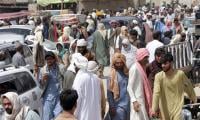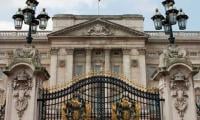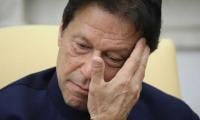LAHORE: Jamaat-e-Islami amir Senator Sirajul Haq, has said enforcement of the Nizam-e-Mustafa (PBUH) was essential in order to make Pakistan truly Islamic and prosperous.
Talking to the media at the Allama Iqbal Airport on Sunday on his return from Saudi Arabia, he said that the JI did not believe in toppling the government but wanted national unity and harmony for resolving the problems facing the country and its people. Sirajul Haq said that the masses had tried all the political parties so far and now it had no option except the Jamaat-e-Islami, and added that the enforcement of the Islamic system was essential in order to make Pakistan truly Islamic and prosperous.
He alleged that the PTI government was the continuation of the previous periods of oppression and tyranny; some new ministers in the federal cabinet had assumed their offices with tall promises but there was no respite from price-hike and exploitation.
Sirajul Haq said it was a part of his faith that a change in the country would come through a change of the system and not change of an individual.
He said had Islamic system been enforced in country all the problems of the country and the nation could have been solved.
He said that during his current visit to the holy land, he had made a fresh resolve at the Baitullah and the Rauza-e-Rasool that he would continue the struggle for the Islamic revolution until his last breath.
Replying to a question, Sirajul Haq said that if India made any fresh move against the country, it would get such a strong response that it would not dare to cast a malignant eye on this country again, he added.
CJP Justice Yahya Afridi convenes meeting of Judicial Commission of Pakistan on December 6
VPN demand escalated further on November 26, reaching 213% above baseline
Rehman declared that current government is a product of electoral manipulation
CM mentioned that priority measures are being taken to bridge gap between state and youth of Balochistan
K-Electric announces respite for people of Karachi by revealing plans to double country’s renewable capacity







